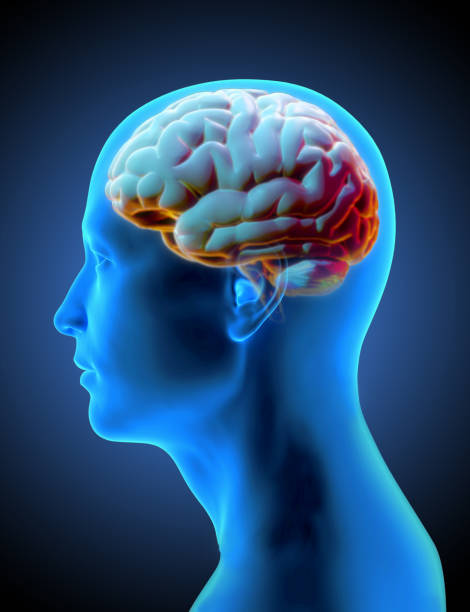Every night, as darkness falls, our bodies quietly prepare for one of the most essential acts of life—sleep. It is something we all do, yet few of us truly understand. We imagine sleep as simple rest, an escape from daily struggles. But beneath its calm surface, sleep is an intricate psychological and biological symphony. It restores our minds, repairs our bodies, and safeguards our emotions. Without it, we unravel.
Modern society, however, has declared war on sleep. Endless work hours, glowing screens, and relentless stress have transformed the natural rhythm of slumber into a nightly battle. Millions toss and turn in silent frustration, wondering why peaceful sleep eludes them. Meanwhile, science reveals what our ancestors instinctively knew: good sleep is not a luxury—it is fundamental to mental health and well-being.
To explore sleep psychology is to journey into a hidden world where brainwaves dance, memories are forged, and emotions find healing. It is to uncover why we struggle to sleep, what happens when we dream, and how reclaiming natural rest can unlock a sharper mind and a healthier heart.
The Architecture of Sleep
Sleep is not a uniform state but a structured journey through distinct stages that cycle through the night. Each stage plays a unique role in restoring both mind and body.
At the onset of sleep, we drift through light stages where consciousness begins to fade. This is when the body relaxes and brain waves slow. Deeper stages follow, where muscles repair, growth hormones surge, and tissues regenerate. Finally, we enter rapid eye movement (REM) sleep, where the brain bursts with activity, producing vivid dreams and integrating memories.
These stages repeat in cycles, each lasting roughly 90 minutes. As the night progresses, the balance shifts—early hours bring more deep sleep, while later cycles favor REM. This complex architecture is not random; it is an evolved design to keep us alive, sharp, and emotionally balanced.
When sleep is cut short or fragmented, this cycle is disrupted. Missing even one stage repeatedly can impair cognitive function, destabilize mood, and weaken the immune system. Understanding this pattern is the first step in unlocking healthy sleep.
The Mind in Slumber: Psychology Behind Sleep
From a psychological standpoint, sleep is more than a biological necessity; it is a profound mental process. During waking hours, our brains absorb endless streams of information, emotions, and sensory experiences. Sleep acts as the brain’s curator, sorting, storing, and discarding what we have lived through.
Studies using brain imaging have revealed that during sleep, especially in REM stages, neural pathways involved in learning and memory fire intensely. This nighttime activity is believed to strengthen important connections while pruning away unnecessary ones. It’s as if the brain spends the night organizing a massive library, making future retrieval of information more efficient.
Emotionally, sleep serves as nature’s therapist. Dreams allow us to replay difficult experiences in safer, symbolic forms, reducing their emotional sting. Research has shown that people deprived of REM sleep are more irritable, anxious, and prone to negative thinking. The mind uses sleep to reset its emotional compass, calming overactive stress responses and reinforcing feelings of safety and resilience.
The Psychology of Insomnia and Sleep Disorders
For many, sleep does not come easily. Insomnia—difficulty falling or staying asleep—is one of the most common psychological issues worldwide. It is often fueled not just by biology but by thought patterns and emotions.
Anxious minds find it hardest to surrender to sleep. Worries loop endlessly, triggering the body’s stress response, which keeps the nervous system on high alert. Depression can also disturb sleep, making it fragmented or excessively long without true restfulness. Over time, sleeplessness can become self-perpetuating. We begin to fear bedtime itself, associating it with failure and frustration, which further delays sleep.
Other sleep disorders, like sleep apnea or restless legs syndrome, disrupt the psychological flow of sleep. Even when unaware of waking, the brain’s cycles are interrupted, leaving people exhausted and cognitively dulled during the day.
Sleep psychology offers treatments rooted in understanding these patterns. Cognitive Behavioral Therapy for Insomnia (CBT-I), for example, helps people identify harmful beliefs about sleep, retrain bedtime behaviors, and gradually restore natural rhythms. Unlike sleeping pills, these psychological approaches treat the root causes, making healing sustainable.
Stress, Anxiety, and the Sleepless Mind
The modern world floods our minds with stress. Deadlines loom, notifications buzz, and uncertainties multiply. When the sun sets, instead of quieting, our minds remain wired, unable to transition into rest.
Biologically, stress triggers the release of cortisol, the “alertness hormone.” At healthy levels, cortisol rises in the morning to help us wake and falls at night to allow sleep. Chronic stress, however, keeps cortisol elevated, tricking the brain into believing it’s still daytime. The result is prolonged wakefulness, restless tossing, and shallow sleep that fails to refresh.
Psychologically, anxious thinking creates a feedback loop. We worry about sleep itself: “If I don’t sleep tonight, tomorrow will be ruined.” These thoughts spike arousal, making sleep even less likely. Learning to break this cycle—through relaxation techniques, mindfulness, and reframing thoughts—can free the mind to drift naturally into slumber.
Sleep and Mental Health: An Unbreakable Bond
Sleep and mental health are inseparable. Chronic sleep loss is not just a symptom of psychological disorders—it can be a contributing cause. People with insomnia are far more likely to develop depression or anxiety. Lack of sleep impairs emotional regulation, making irritability, mood swings, and negative thinking harder to control.
Conversely, improving sleep has profound mental health benefits. Restoring healthy cycles can lift mood, sharpen thinking, and reduce symptoms of disorders like bipolar depression and PTSD. In fact, sleep therapy is increasingly recognized as a core treatment for mental illness, not just a secondary aid.
Neuroscience sheds light on why this bond is so strong. During deep sleep, the brain’s glymphatic system flushes out toxins that accumulate during the day, including proteins linked to neurodegenerative diseases. Meanwhile, REM sleep recalibrates neural circuits involved in processing emotions. Without these processes, the mind cannot heal from daily stress or adapt to challenges.
The Role of Dreams in Mental Balance
Dreams are a fascinating psychological frontier of sleep. Though long misunderstood, science now suggests they serve crucial functions for mental health.
Dreaming may act as overnight emotional therapy. When we dream, especially during REM, stress-related neurochemicals drop, allowing us to re-experience troubling events with reduced intensity. This helps us emotionally digest difficult situations and prepares us to face them with less fear upon waking.
Dreams also fuel creativity and problem-solving. The loosened logic of dreams allows the mind to connect ideas in novel ways. Many breakthroughs in art, music, and science have emerged from dream-inspired insights, demonstrating that the sleeping brain is not idle but actively shaping our waking potential.
Nightmares, while distressing, can also serve adaptive purposes. They signal unresolved fears and trauma, urging us to address hidden issues. With psychological support, people can even learn to reshape recurring nightmares, transforming terror into mastery within the dream itself.
Technology, Lifestyle, and the Sleep Crisis
The psychology of sleep cannot be understood without looking at modern lifestyles. Electric lights and screens have extended daylight far into the night, disrupting the body’s circadian rhythm—the internal clock aligned with natural sunlight.
Exposure to blue light from devices suppresses melatonin, the hormone that signals the brain it’s time to sleep. Psychologically, late-night scrolling keeps minds engaged and anxious, delaying rest. Shift work, irregular schedules, and 24-hour access to stimulation have further detached humans from ancestral sleep patterns evolved over millennia.
To restore balance, sleep psychology emphasizes re-synchronizing with natural rhythms. This includes managing light exposure, setting consistent sleep times, and creating calming pre-sleep rituals. Re-teaching the brain that night is for rest is essential for long-term mental health.
Healing the Mind Through Sleep
True psychological healing begins with honoring sleep as a foundation, not an afterthought. When the mind finally rests, magic happens beneath the surface. Emotional scars begin to mend. Thoughts once jumbled find clarity. The future feels less overwhelming.
Therapists often describe sleep as a hidden ally in recovery. For individuals battling depression, anxiety, addiction, or trauma, restoring healthy sleep can be the turning point. Techniques like CBT-I, guided imagery, and relaxation exercises are not just about getting through the night—they are about rebuilding resilience and emotional balance for life.
Holistic approaches combine these psychological methods with physical care: improving diet, regular exercise, managing caffeine and alcohol, and addressing medical conditions that disrupt rest. The brain and body are inseparable; nurturing both is key to unlocking sleep’s full therapeutic power.
The Future of Sleep Science and Psychology
Sleep psychology is entering a golden age of discovery. Advances in neuroscience are revealing intricate details of how sleep shapes memory, emotion, and consciousness. Wearable technology now tracks sleep stages with remarkable accuracy, empowering individuals to understand their patterns like never before.
Researchers are exploring groundbreaking therapies—from targeted brain stimulation to dream engineering—that may revolutionize treatment for sleep disorders and mental illness. The possibility of enhancing sleep for learning, creativity, or even emotional resilience is no longer science fiction.
Yet amid these innovations, the timeless truth remains: sleep is a natural human gift. No machine can replicate its healing essence. The challenge is not just technological but cultural—rediscovering sleep as sacred, prioritizing it in our personal lives and collective health policies.
A Quiet Revolution
Unlocking the secrets of sleep psychology is more than improving nights—it is transforming lives. Imagine a world where children grow up learning the value of rest as deeply as nutrition or exercise, where workplaces honor biological rhythms, and where mental health care begins with restoring natural sleep.
This vision is not distant. It begins with understanding and respecting the quiet, nightly journey our minds embark upon. It begins with recognizing that better sleep is not indulgence but essential medicine for the soul.
As you lay your head on the pillow tonight, remember: beneath closed eyes, your mind will embark on a profound mission—healing wounds, nurturing memories, balancing emotions, and preparing you to face the dawn anew. Sleep is not the absence of wakefulness; it is the unseen foundation of a thriving, resilient mind.






